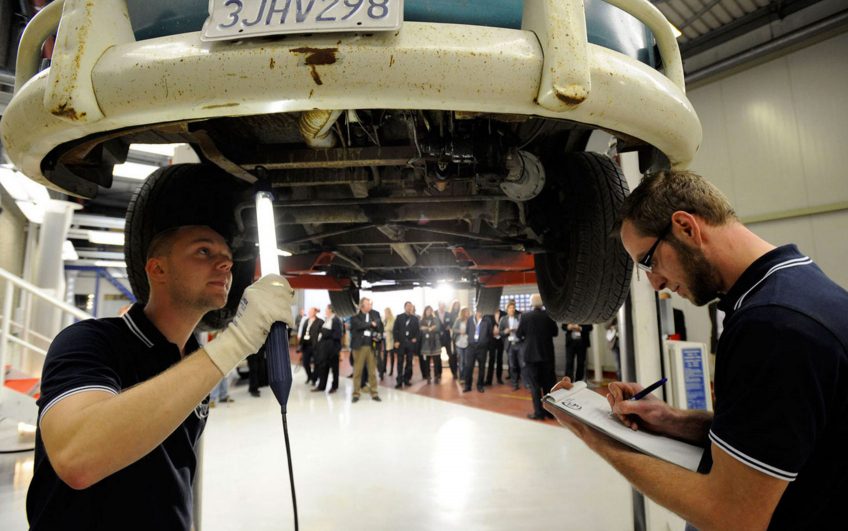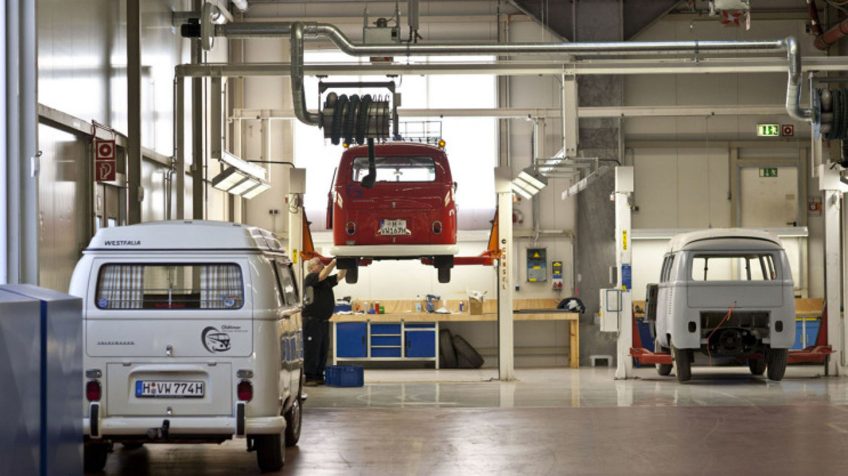What constitutes a historic vehicle? Well, according to the people that levy Vehicle Excise Duty (VED) it’s any car which reaches 40 years of age. But for another government agency, namely the Department for Transport (DfT), it’s any vehicle built before 1960. With the obvious and often confusing discrepancy highlighted by the fact that the VED exemption is on a rolling basis, with more cars becoming exempt each year, calls are growing to a change in the MoT ruling.
Due to regulations introduced in 2012, owners of cars built on or before 1960 don’t need to put their vehicles through an annual test, as long as they remain roadworthy. However, Sir Greg Knight MP of the All Parliamentary Historic Vehicles Group (APPHVG) has recommended that the MoT exemption age be lowered, making all vehicles made 40 years ago exempt from both VED and MoT as part of the Historic Vehicle classification and that both are enforced on a rolling date basis.
The proposed changes coincide with further likely rule changes throughout mainland Europe as part of the 2017 EU Roadworthiness Directive, although as we are now poised to possibly leave the EU at some point, it is unknown how these measures will eventually affect UK enthusiasts.

Reportedly, the DfT is considering a number of other proposals concerning older vehicles which will be put out to consultation later in the year where lobbying bodies such as the Federation of British Historic Vehicle Clubs will be able to have their say, with any changes likely to be declared by May 2017.
According to the weekly classic car publication Classic Car Buyer, ClassicLine Insurance is backing Sir Greg’s campaign as part of its ‘Save our Classics’ appeal which is aimed at raising the awareness of endangered classics, suggesting that raising the date of the MoT exemption from 1960 to 1970 would keep more of our older cars on the road.

While avoiding the expense, hassle and worry of putting an older vehicle through an MoT every year appeals, it’s not something that’s universally applauded. The argument goes that us enthusiasts tend to keep a closer eye on maintenance and by lavishing time, love and care on our classics they remain in a state of constant good health. However, many believe there’s no substitute for having a car regularly checked on a four-post lift by a trained mechanic. After all, it’s prudent to ask when was the last time you inspected the inner walls of your tyres or gave the condition of your flexible brake pipes a close eyeball? Having an unbiased professional inspection carried out of repairs and welding work to check for bodges, and indeed any unsafe modifications, could also be deemed useful for newcomers to the scene or those who have just acquired their first historic VW. Where safety is concerned, many would consider the cost of an annual MoT a small price to pay…
What do you think – should Dubs made prior to the mid-’70s become exempt from the MoT?
Ian
The opinions expressed here are the personal opinions of the author and do not necessarily represent the views and opinions of VW Heritage.


I think it should be changed to a rolling basis, the MOT is not really fit for a classic car, with so many testing stations taking differing views on classic cars. It is more of a lottery than a real honest test….fit for the particular vehicle being tested.
I think it should be changed to a 40 year rolling basis but that for classic vehicles older than 40 years MOT garages (who wish to participate) could offer an annual (but non-compulsary) “advisory inspection” I.e. they would recommend to the owner things that might benefit from attention. Any paperwork would be strictly between the owner and the garage (no DVLA/police awareness). I would expect that garages offering this service would be sympathetic towards vehicles that (even when new) wouldn’t even come close to current vehicle regulations and that appreciate/require to be driven with both understanding and tlc.
There is a similar arrangement for light aircraft pilots – every 2 years you have to have a “check flight” with an instructor – he/she can’t fail/ground you, but they will tell you if/where you should perhaps hone your skills.
I regularly maintain my classic cars, but mot failures occur that are not found during home maintenance.
However the need for an mot may become academic as the insurance companies will insist on some proof that the vehicle is road worthy.
I agree that the modern mot is not entirely suitable for old cars and a degree of pragmatism has to be applied, but the judgement side is becoming stricter and mot stations don’t want to lose their licences.
I suspect they will insist that mot exempt vehicles receive an appropriate and regular inspection of some sort.
If an mot is not required then maybe there is a business opportunity here for some garages to offer a classic car road worthiness inspection; maybe the insurance companies, dft and garage industries could devise a program for doing this!!!
Just a few thoughts!
How about a reduced charge for VED exempt vehicles. As they currently do not require emissions testing and a few other ‘modern vehicle requirements’ , the test should take less time …
Compared to the cost of running a classic car the cost of an MOT is insignificant.Can we as the community put hand on heart and say that ” every enthusiast ” is competant to be sure the vehicle is safe. No! so we need an independant adjudicator ie MOT.
I agree, there needs to be some independent assessment. Maybe a free mot aimed at classic cars😃
i fully support the proposed mot exemption, due to the mot (vehicle safety check) only being valid on the day of the vehicle inspection, see part 2 on the MOT Certificate, all drivers have a duty of care to ensure their vehicle is in a road worthy condition, prior to use on the public highway in any event. I have not seen any evidence of any present MOT exempt vehicle being responsible for causing a accident due to the failure to maintain the vehicle. There are Garages that provide vehicle safety checks, some of which will do the safety check free of charge, hence as historic vehicles are only used for limited use, covering not many miles, some of which may only cover in the region of 100 per year, I personly have a historic vehicle that has only coverd 100 miles since 2005, and never faild a mot.
The MOT should remain for vehicles over 40 years old. I have a 36 year old type 25 camper and an I am experienced DIY mechanic (I also have a 34 year old Golf mk2, which I bought new). However, my MOT garage sometimes spot safety issues I have missed. There is no substitute for a detailed examination of the underside of a vehicle in a properly equipped garage with a vehicle lift. Braking, steering and emissions should be assessed on the original performance of the vehicle, not that of a current new vehicle.
The later air-cooled engines can achieve low CO and HC emission, mine are typically both just 10% of the limit for its year, but I do think a discount for the simpler exhaust emissions check would be appropriate.